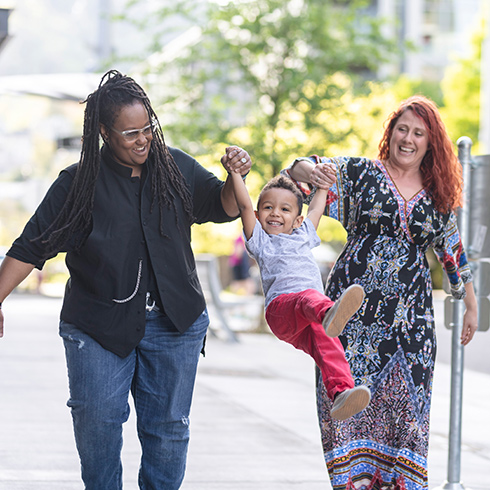LGBTQ+ History Makers Are Spotlighted in New Milestones Series
Originally published by 
The Advocate’s Milestones video series, produced in partnership with Merrill, highlights leaders in the LGBTQ+ community who fight for LGBTQ+ rights and well-being every day — and who have achieved important goals in their lives. In the series, we hear from:
- Dr. C. Nicole Mason, president and CEO of the Institute for Women’s Policy Research, who was named one of the World’s 50 Greatest Leaders by Fortune and a Champion of Pride by The Advocate. She shares insights on home buying and job protections for LGBTQ+ identified people.
- Nikki Weiss-Goldstein and Jill Goldstein, who share how they’ve protected their family both legally and financially since getting married and having children.
- Don Quaintance, Men’s Circle founder and a 2021 Advocate Champion of Pride, who discusses his history of advocacy and the importance of giving back to the community.
- Feroza Syed, Trans Housing Coalition founder and director, who discusses access to housing and healthcare as important drivers of financial freedom.
By sharing the personal experiences of LGBTQ+ leaders who have achieved key milestones in their lives, The Advocate and Merrill hope to ignite a conversation that drives change and inspires all people within the LGBTQ+ community to chart their own path to financial freedom.


